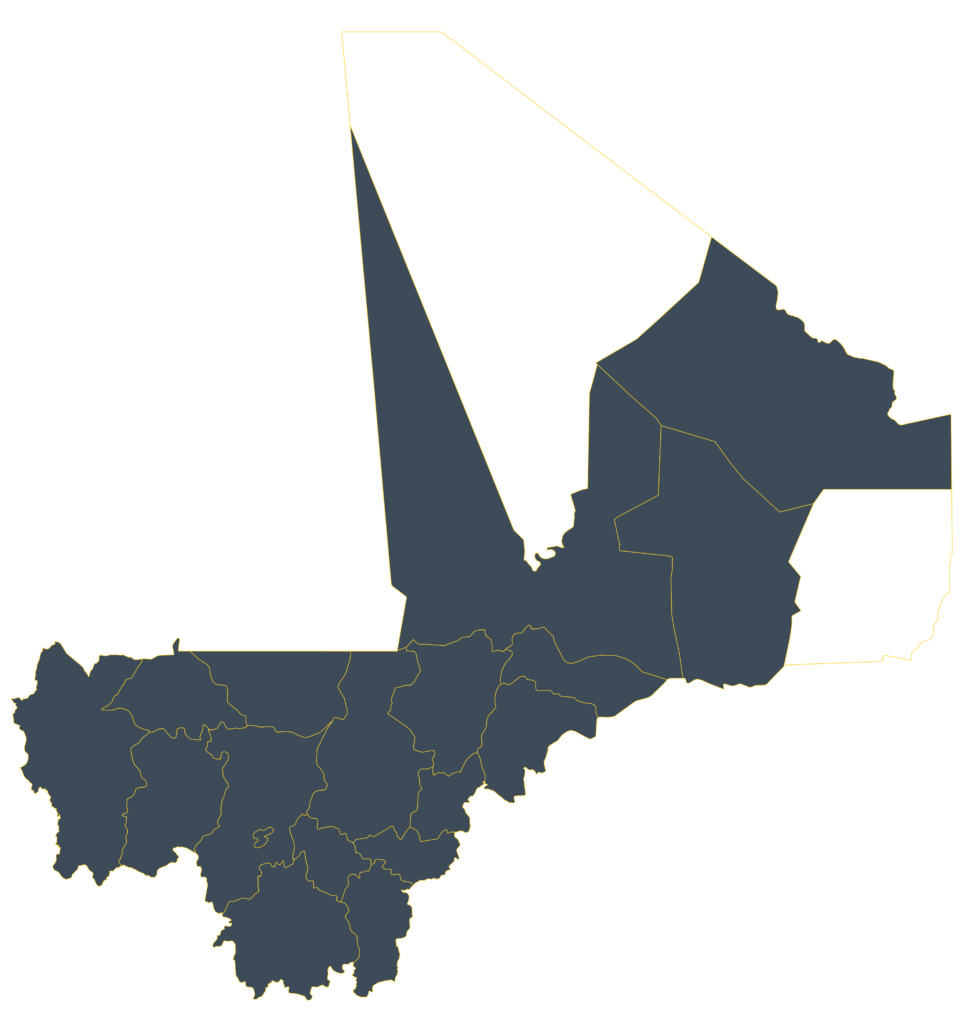MALI
BACKGROUND AND CONTEXT
The threat of terrorism and violent extremism have worsened in recent decades, become increasingly pronounced in the Central Sahel region of Burkina Faso, Chad, Mali, Mauritania and Niger.
Key drivers of violent extremism include high levels of youth unemployment, recurring farmer-herder conflicts, and persistent governance-related grievances. Terrorist and violent extremist groups exploit these vulnerabilities by promoting narratives of injustice and offering protection in exchange for loyalty, thereby further destabilising already fragile communities. GCERF began investing in the country in 2017 and till date USD 10.1 million has been invested to address these drivers of violent extremism.
OUR INVESTMENT STRATEGY IN MALI
GCERF’s investment strategy outlines a comprehensive approach to address the drivers of violent extremism and guides civil society organisations in designing their programmes.
GCERF funds programmes that:
Strengthen pastoral resilience through targeted infrastructure investments, aiming to ease land-related grievances and limit exploitation by violent extremist groups
Promote socio-economic integration through livelihood opportunities to reduce susceptibility to radicalisation and recruitment by violent extremist groups
Support the reintegration of ex-detainees and ex-combatants through community-based initiatives that promote tolerance and reduce the risk of recidivism
KEY FIGURES
(cumulative from 2017 to March 2025)
AREAS WHERE WE WORK
Kayes, Mopti, Koulikoro, Timbuktu, Bamako, Gao, Sikasso, Kidal, Segou

Newsletter

Sustainable Development Goals

Peace, Justice & Strong Institution
No Poverty

Quality Education

Gender Equality

Decent Work & Economic Growth

Reduced Inequalities

